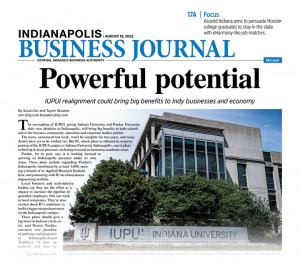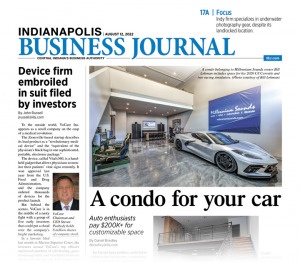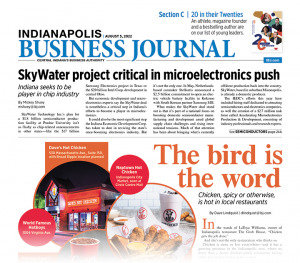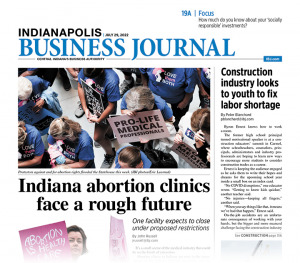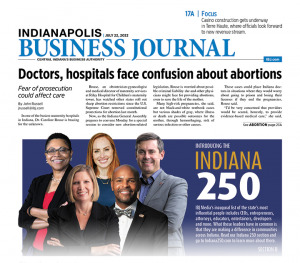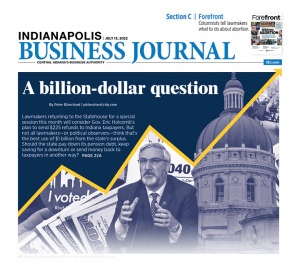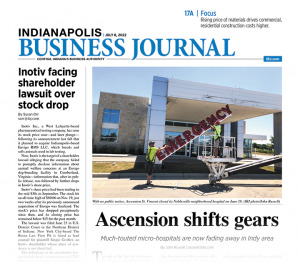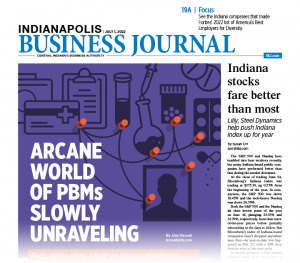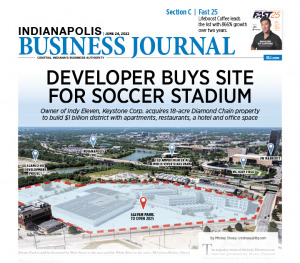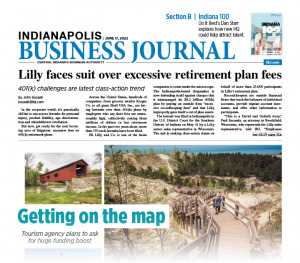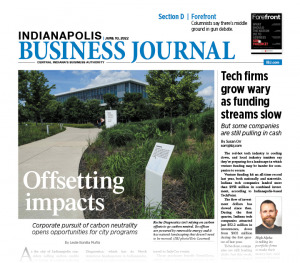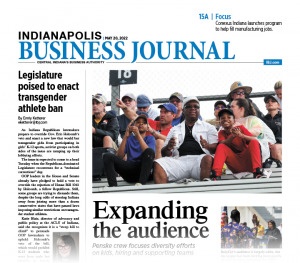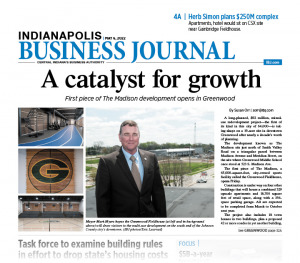
AUG. 26-SEPT. 1, 2022
A provision in the $280 billion CHIPS and Science Act authorizes $10 billion to create 20 tech hubs across the nation—three of which should be in the Midwest and in areas not already known as leading tech centers. Peter Blanchard explores Indiana’s chances for getting on the list. Also in this week’s issue, Dave Lindquist outlines how artist Lobyn Hamilton is investing in an east-side neighborhood and creating living and studio spaces for other artists. And Daniel Bradley reports on the effort to save trees and other aesthetic features in Westfield and Noblesville as Duke Energy plans a new substation and two transmission lines to serve growing power needs in the communities.

